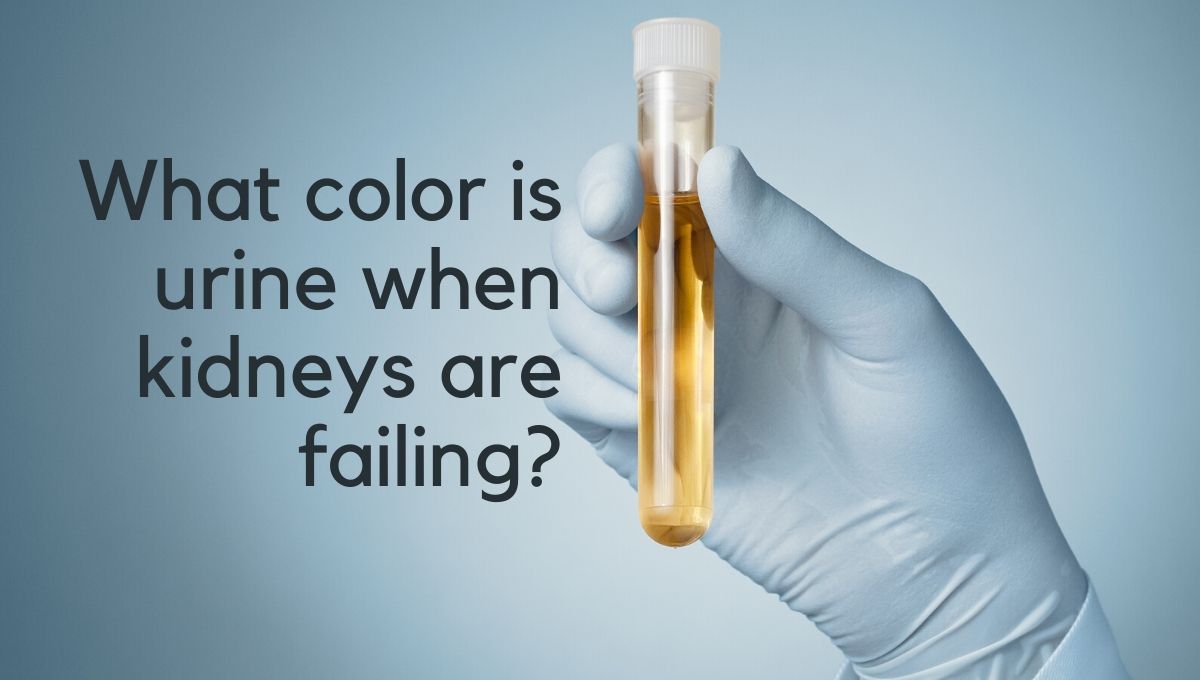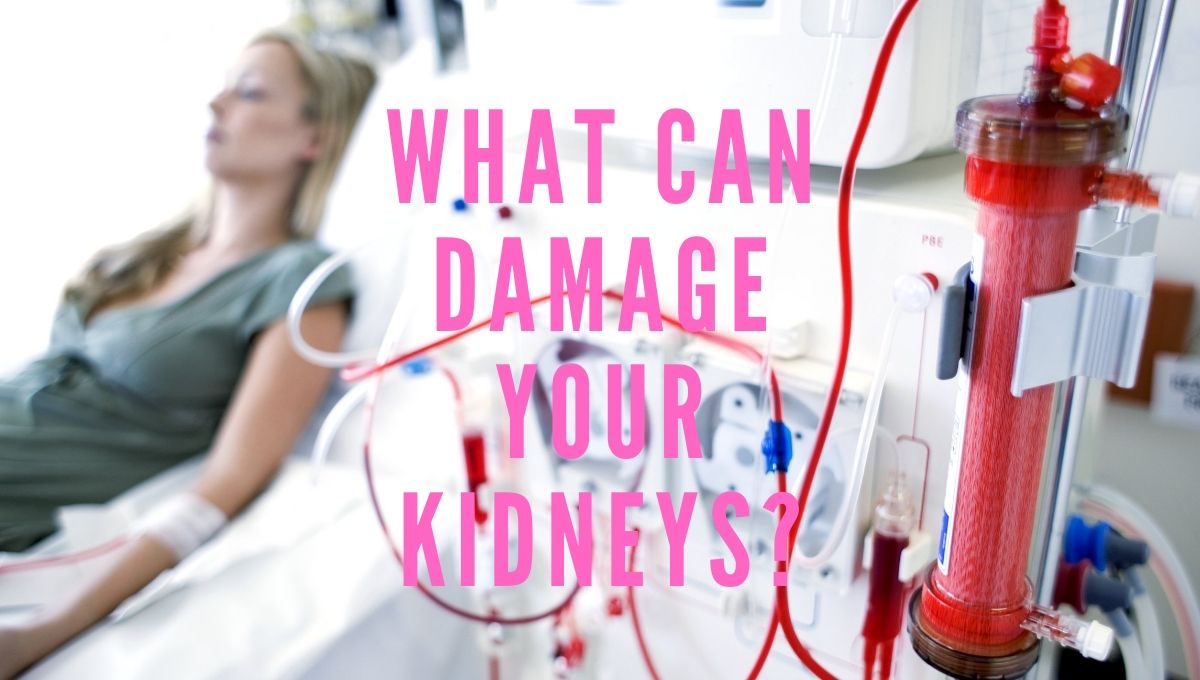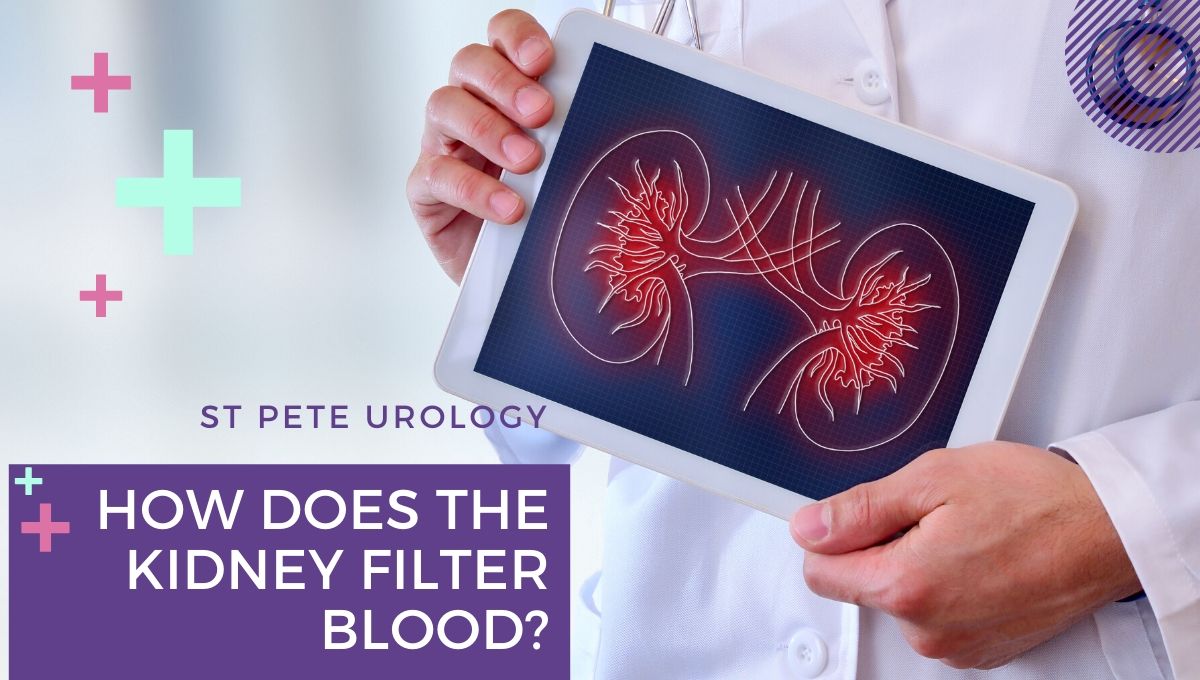Learn what stage 1 kidney cancer means, including symptoms, survival rates, and treatment options. Expert insights from St. Pete Urology’s board-certified specialists.
Continue readingWhat Do You Do to Get Rid of Kidney Stones?
What do you do to get rid of kidney stones? Explore comprehensive kidney stone treatment and prevention strategies at St. Pete Urology.
Continue readingHow does Alcohol Increase the Risk of Kidney Disease?
Does alcohol increase the risk of kidney disease? Uncover the intricate relationship between alcohol consumption and kidney health at St Pete Urology.
Continue readingWhat Foods Should Be Avoided with Compromised Kidney Function?
What foods should be avoided with compromised kidney function? Reducing sodium and potassium intake can help people with reduced kidney function.
Continue readingKidney stones: What are your treatment options?
Experiencing kidney stones? What are your treatment options? The severity of the kidney stones may dictate which treatment to get.
Continue readingCould Your 4th of July Celebration Lead to Kidney Stones?
Ways to Keep Your Kidneys Healthy
What color is urine when kidneys are failing?
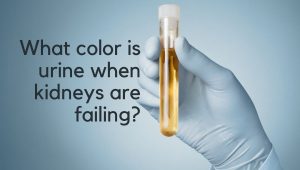 Kidney failure is a condition in which one or both kidneys can no longer work on their own. It may be due to an acute injury to the kidneys or a chronic disease that gradually causes them to stop functioning. When kidneys are healthy, they clean the blood by removing excess fluid, minerals and wastes. But when they are failing, harmful wastes build up in the body and excess fluid is retained, changing the appearance, amount and number of times urine is passed.
Kidney failure is a condition in which one or both kidneys can no longer work on their own. It may be due to an acute injury to the kidneys or a chronic disease that gradually causes them to stop functioning. When kidneys are healthy, they clean the blood by removing excess fluid, minerals and wastes. But when they are failing, harmful wastes build up in the body and excess fluid is retained, changing the appearance, amount and number of times urine is passed.
Clues from urine color
Urine can provide a lot of information about what is going on in the body, including kidney failure. It can be all sorts of colors, from pale yellow to amber, and even pink, orange or green. For healthy urine, the color ranges from pale yellow to amber-colored, depending on the body’s hydration level. Pale yellow urine means high hydration while dark amber means more concentrated urine, indicating dehydration.
The pigment called urobilin (urochrome) causes the yellow color in urine. The kidney filters out this byproduct from the bloodstream and removes it from the body in urine. The more fluids you drink, the lighter the color of this pigment in urine. The less you drink, the stronger the color. For example, during pregnancy there is 50% increase in blood volume, so urine tends to be clearer and more diluted during pregnancy.
What urine colors are abnormal?
Paying attention to the color of urine can make you aware of your kidney health and alert you to the need for a medical checkup. Clear to yellow urine is normal and indicates normal kidney function, while odd colors such as orange or blue may be due to certain medications such as laxatives, antidepressants and antibiotics. But there are two colors that you must take seriously: red and dark brown.
Pink or red urine means red blood cells are present in urine. These colors may be a sign of infection, kidney stones or even cancer. Dark brown urine could mean you are extremely dehydrated, but if you drink plenty of fluid and the urine is still brown then you may have muscle breakdown, kidney disease or kidney failure.
What is the color of urine when kidneys are failing?
When kidneys are failing, the increased concentration and accumulation of substances in urine lead to a darker color which may be brown, red or purple. The color change is due to abnormal protein or sugar, high levels of red and white blood cells, and high numbers of tube-shaped particles called cellular casts. The presence of blood in urine may make urine appear red or the color of tea or cola. Dark brown urine occurs in kidney failure due to the buildup of waste products in urine or urinating less often and in smaller amounts than usual.
Foaming or fizzing urine may also be a sign of kidney failure, though foam is not a color and usually occurs due to increased protein in urine or kidney disease. Foamy urine indicates a diminished ability of the kidney to filter and clean the blood.
Treatment of kidney failure
Kidney failure can be a debilitating and life threatening condition with symptoms such as lethargy, weakness, generalized swelling, shortness of breath, congestive heart failure and fatal heart rhythm disturbances. If your kidney is failing, treatment of the underlying disease may be the first step in correcting the problem.
Many causes of kidney failure are treatable and visiting a urologist will ensure the underlying condition is diagnosed and treated to restore normal function. The urologist may also plan for control of blood pressure, diabetes or other underlying conditions as a way of preventing chronic kidney disease. But in some situations, kidney failure is progressive and irreversible. When that happens, the only treatment options are dialysis or transplant, each with benefits and drawbacks.
Whatever treatment your urologist recommends, you will need to make some changes in your life, including how you eat and plan your activities. With the help of your urologist, family and friends, you can continue to lead a full and active life. For more information on symptoms, diagnosis, treatment and management of kidney failure, visit the St Pete Urology website.
What can damage your kidneys?
 The kidneys are a pair of organs located on either side of the spine just above the waist. Healthy kidneys work as your body’s filtration system. They help balance water and minerals in your blood. They remove waste from the blood that develops from digestion and muscle activity. In addition to filtration, the kidneys make renin to help manage blood pressure and vitamin D for bone health, among other things. There is no question that the kidneys are an important and hard-working pair of organs.
The kidneys are a pair of organs located on either side of the spine just above the waist. Healthy kidneys work as your body’s filtration system. They help balance water and minerals in your blood. They remove waste from the blood that develops from digestion and muscle activity. In addition to filtration, the kidneys make renin to help manage blood pressure and vitamin D for bone health, among other things. There is no question that the kidneys are an important and hard-working pair of organs.
Like any other organ in the body, there are factors that can damage and affect the kidneys ability to perform their vital functions. Acute kidney problems are those that happen suddenly or in a brief amount of time. Some examples of acute kidney problems are direct trauma to the kidneys, not enough blood flowing to the kidneys, or urine backed up in them.
There are a variety of factors that can cause acute kidney problems. Traumatic injury can be caused by an incident like a car wreck or severe fall. Extreme dehydration can cause the kidneys to begin to fail. Certain drugs can release toxins that in large quantities can cause kidney failure. In men, both an enlarged prostate and kidney stones can restrict urine flow to the point the urine becomes backed up in the kidney.
Chronic kidney damage occurs when the kidneys have not been working correctly for longer than three months. Chronic kidney damage is usually the result of disease over long periods of time. High blood pressure and types 1 and 2 diabetes are the most common reasons behind chronic kidney damage. In addition to high blood pressure and diabetes, chronic kidney damage can also be attributed to illnesses like lupus, HIV/Aids, hepatitis, and urinary tract infections within the kidneys.
Urologists have many tools to help with prostate and kidney stone issues. They can remove tissue from an enlarged prostate, relieving pressure on the urethra and freeing up the flow of urine. They also have ultrasounds that use sounds waves to break up large kidney stones that can be restricting urine flow. In both cases, being able to rid the kidneys of urinary toxins can be lifesaving.
There are many factors that can damage your kidneys. St Pete Urology has urologists that understand the causes of kidney damage and what can be done to produce good outcomes and better lives for those who have suffered kidney damage. For more information, visit the St Pete Urology website.
How does the kidney filter blood?
 Many people do not realize how vital their kidneys are to their overall health until an issue arises and they need to seek medical care. Knowing what your kidneys do and how they function can go a long way toward maintaining good health before a problem occurs or understanding the treatment process once you are under a urologist’s supervision.
Many people do not realize how vital their kidneys are to their overall health until an issue arises and they need to seek medical care. Knowing what your kidneys do and how they function can go a long way toward maintaining good health before a problem occurs or understanding the treatment process once you are under a urologist’s supervision.
What Do My Kidneys Do?
Your kidneys are basically your body’s filtration system. Every minute, approximately half a cup of blood flows through them. As the blood flows through, waste products are removed, as is excess water; the levels of minerals and salt are also adjusted if need be. Although around 150 quarts of blood are filtered by your kidneys every day as it continually cycles through your body, only about 1-2 quarts of urine are produced from the waste products and excess water. The urine then flows to the bladder through a tube called the ureter.
How Do My Kidneys Work?
Inside each kidney, there are about a million tiny filtration units called nephrons. The nephrons are made up of a filter called a glomerulus and a tube called a tubule. Blood flows through the glomerulus, where waste and excess water or minerals are filtered out. The tubule then sends the filtered substances to collect in the kidneys before flowing through the ureter to the bladder, while the newly-filtered blood is returned to the rest of the body. There are so many nephrons in your kidneys that even if more than half of them are no longer working, you may not notice any issues or symptoms.
What Happens If Something Goes Wrong?
Many things can occur to interrupt the function of your kidneys. Warning signs of kidney disease include an increased need to urinate, especially at night, blood in the urine, foamy urine, cramping muscles and swollen ankles and feet. These are all signs that something could be wrong with the filtration system in your kidneys, causing issues with fluid and electrolyte levels in your body.
Another common problem is kidney stones. When there is a buildup of certain waste products in the kidneys and not enough fluid to flush them out, these waste products can crystallize and form stones that cause extreme pain as they leave the body. If you suspect you are dealing with kidney stones, kidney disease, or other problems with your urinary system, it’s important to talk to a doctor right away, like the urologists at St Pete Urology, who will be able to diagnose any issues and help you and your kidneys return to normal healthy function as soon as possible.
For more information, visit the St Pete Urology website.


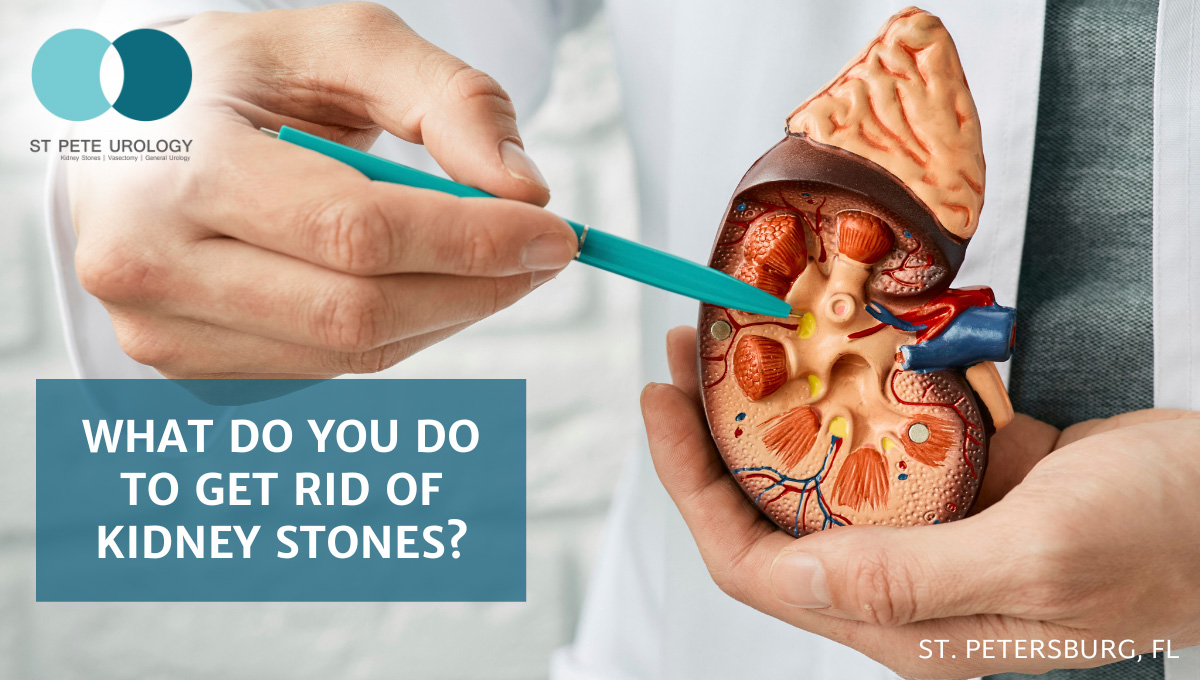
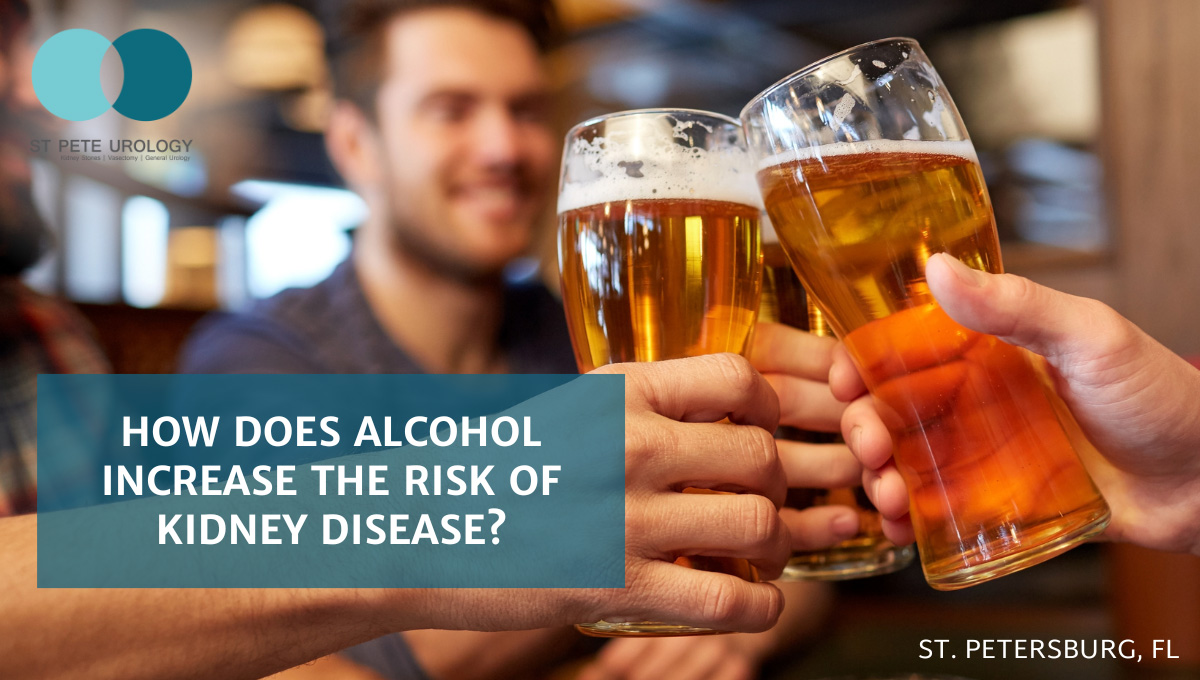
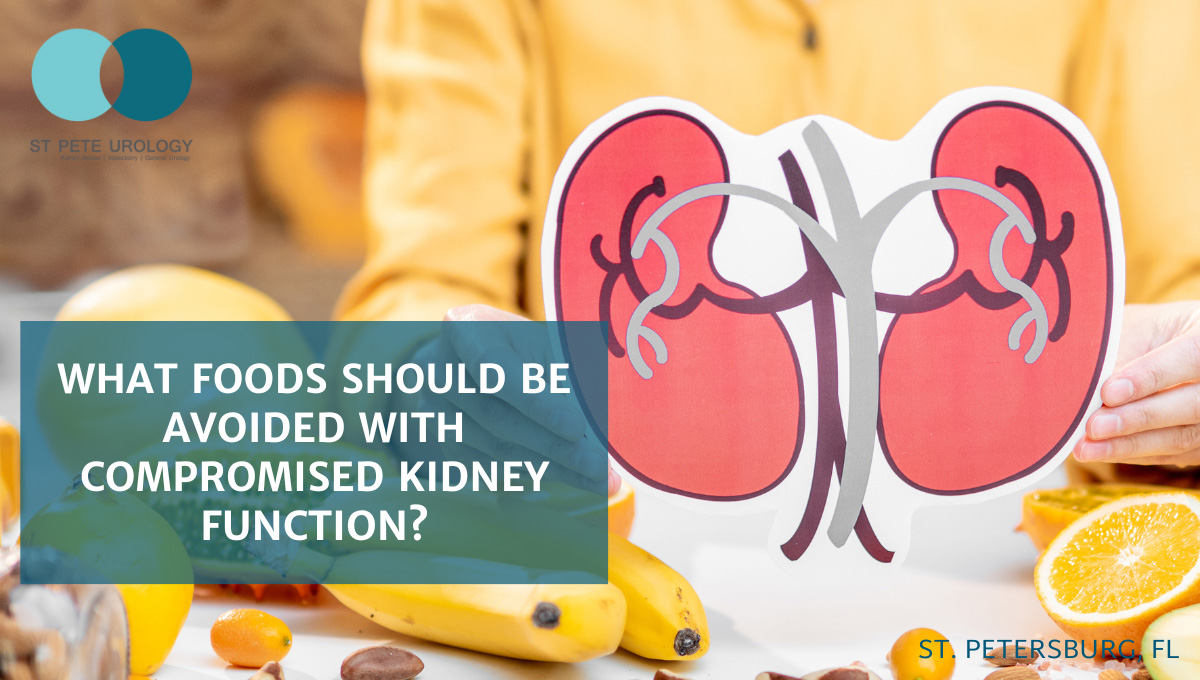


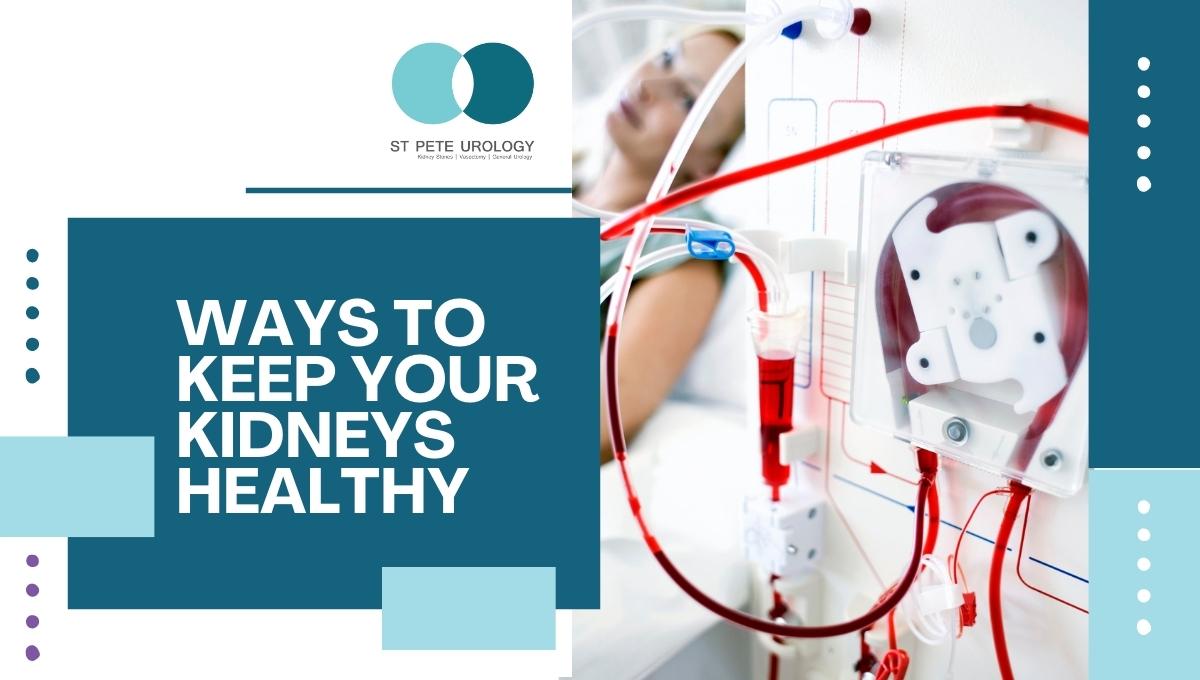
 Having healthy kidneys is important for your general health and well-being. The kidneys are vital organs that filter out waste products, excess water and other impurities from your blood. Once removed from blood, the wastes are temporarily stored in your bladder before expulsion in urine.
Having healthy kidneys is important for your general health and well-being. The kidneys are vital organs that filter out waste products, excess water and other impurities from your blood. Once removed from blood, the wastes are temporarily stored in your bladder before expulsion in urine. 